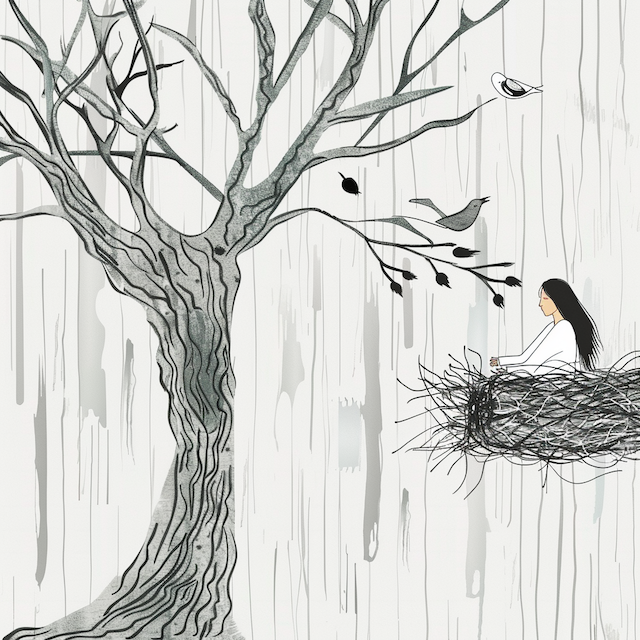The house creaked with a silence I hadn’t known before. It was not the peaceful kind—this silence rattled around empty bedrooms and echoed down hallways where laughter used to bounce. Mother’s Day is a cruel irony when you’re an empty nester.

Coffee turned bitter in my mouth, and the mug felt foreign in my hand. For years, different mugs get filled with hurried sips between diaper changes and school runs. Now, the only rush was the relentless clock ticking, counting the hours until I could pretend that sleep might drown out the hollowness inside.
They warned me, those well-meaning women. “Enjoy it; it goes so fast,” they’d say with wistful smiles. I’d nod, impatient then. If only I’d known “fast” meant a blink, a blur, and suddenly those chubby cheeks and sticky fingers were replaced with hastily packed suitcases and a rearview mirror filled with a life heading away from mine.

So many regrets. There were sharp pangs for the mistakes I made: unnecessary fear over a child that might die and not being demonstrative of my love for this child. But the dull ache was worse—the knowledge that even if I’d been perfect, this day would have still come. Children are arrows shot out into the world, and we’re left holding the bow.
The photo album lay open on the table, faces accusing me. There I was, younger, thinner, but with an edge in my eyes. Was I too critical, too quick to offer correction rather than just presence? Was I too detached? Distant? Did they hear “I’m disappointed” instead of “I love you” whispered beneath my frustration?
Tears splashed onto the page, blurring the images. No amount of wishing could rewrite the past. Motherhood isn’t a fairy tale with guaranteed happy endings; it’s a messy, glorious battle fought on uncertain ground. We all did the best we could with what we knew then.
A Christmas card my daughter wrote 20 years ago peeks out from my memory box. Inside, this is an excerpt said: ” You’ve done a wonderful job and I appreciate it very much.
I see you do so many things for us, and sometimes I wonder if you do anything for yourself. It’s okay for you to take care of us, but I think you need to take more care of yourself. I guess I’m a bit worried about what you will do with your life after M and I leave the nest. I think it would be nice for you to go out once in a while, relax and just have fun and not attend to family duties. Take a break and be yourself.”.
I surely did. I became a social mom, made a name online and now as a columnist.
Today, my daughters are chasing their own dreams out there in the wide world. That’s all I ever truly wanted for them. My heart, cracked and weathered, began to stitch itself back together with a love less frantic but steadfast.

I wouldn’t waste this silence on beating myself up. Instead, I’d brew another cup of coffee and then say a little prayer. I’d find an old book, finish my quilt project I started in 1995, and venture out of this too-quiet house. There’s a different rhythm to this part of life; it was time to learn the steps. I may not be a perfect parent, but I did so many things right. To my fellow mothers, remember, imperfections are part of what make our stories beautiful. We are perfectly imperfect, and that’s enough.


